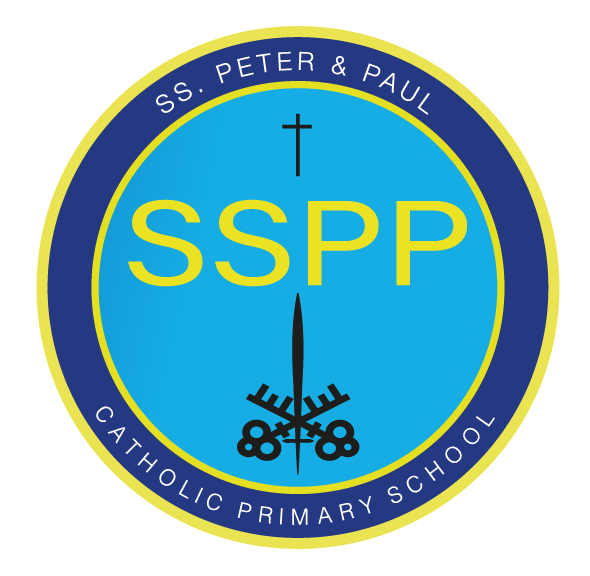
Computing

At SSPP, children will be absorbed into an exciting ‘Computing Learning Journey’ that will prepare them for today’s digital world. We recognise how computers form an integral part of everyday life and that technology is now essential in both the workplace and in our homes. Our pupils will need to live as computer literate citizens, in a digital society. Thus it is imperative that we teach pupils to be confident and creative with technology, push boundaries with innovation and look at the role creativity will play alongside technology. They will be taught computing skills and knowledge needed for lifelong learning and will learn to adopt a safe and considered approach to technology.
At SSPP, we aim to prepare our pupils to live and thrive in a world that is changing at a rapid pace. We understand the future opportunities that a high quality computing education can provide to our pupils. Thus, our curriculum will give each a broad, deep understanding of computing and how it links to their lives. Our goal is to enthuse all pupils to ensure progress for all.
Through teaching the Connected Curriculum, children will be able to:
understand and apply the fundamental principles and concepts of computer science, including abstraction, logic, algorithms and data representation
analyse problems in computational terms, and have repeated practical experience of writing computer programs in order to solve such problems
evaluate and apply information technology, including new or unfamiliar technologies, analytically to solve problems
be responsible, competent, confident and creative users of information and communication technology.
We are please to announce that we have teamed
up with Hi-impact and their Connected Curriculum
Our computing curriculium is organised around 3 key modules:
Information Technology and Digital Literacy
We offer an enriching computing curriculum designed to empower students with essential information technology and digital literacy knowledge.
Throughout each year, students in every year group will delve into five carefully crafted blocks of work, each focusing on key elements of information technology and digital literacy. By doing so, we ensure that our students receive regular exposure to these important areas of the curriculum.
The benefit of the Connected Curriculum lies in its progressive nature. Each block builds upon the knowledge and skills acquired in previous years but is presented in a more age-appropriate manner, utilizing various apps and technologies that resonate with students of different ages. This approach allows for the gradual advancement and development of more complex concepts and knowledge.
Every unit is thoughtfully structured to equip students with the component knowledge they need to confidently tackle more sophisticated computing tasks. Our goal is to make the learning journey enjoyable, manageable, and effective.
Computer Science
Each year, there are three blocks of engaging lessons for your students. Within each block, there are three or four lessons packed with exciting content.
The first two terms of the year are dedicated to covering essential key concepts and knowledge in computer science. We want to build a strong foundation for our students in this rapidly evolving field. As we progress to the summer term, we incorporate physical computing into the curriculum. Students get to apply the skills they've learned in the previous blocks, making their learning more hands-on and practical.
Our program is designed to gradually deepen the students' understanding of coding concepts over the years. For example, in Year 3, we start with simple 'count-controlled' and 'forever' loops. In Year 4, we revisit these loops and introduce 'nested loops' to challenge our students further. By Year 5, we delve into more complex nested loops and introduce conditional loops like 'if/else' and 'until'. All these concepts are consolidated and mastered in Year 6.
Throughout each year, we emphasize logical reasoning and computational thinking skills, which are essential in problem-solving and becoming confident coders.
Lessons are predominantly based on the free platform from code.org. You will need to register for an account and set up your classes. The code.org dashboard will allow you to track and monitor pupils' progress in Computer science over the year.
Digital Literacy
Every half term, pupils receive a dedicated computing lesson, specifically centered around elements of Education for a Connected World. These lessons serve as an introduction to the various issues they will explore in their information technology or digital literacy units that term.
To deliver these high-quality lessons, we recommend the Common Sense Media platform, which offers a wealth of lessons and resources that are free to access. Links to these lessons are in the long-term plans.
In our long-term planning, we ensure that our lessons are closely aligned with the 8 themes of the Education for a Connected World framework. This framework is widely recognised as a leading guide for digital citizenship education and was developed by the UK Government working group, UK Council for Internet Safety (UKCIS). It takes inspiration from the six topics of digital citizenship education developed by Common Sense Education, a respected authority in the field.
The Connected Curriculum prepares students to navigate the digital world responsibly and confidently. Education for a Connected World, widely recognised as the best practice guide for digital citizenship education, was developed by the UK Government working group, UK Council for Internet Safety (UKCIS), and is modelled after the six topics of digital citizenship education developed by Common Sense Education. The table below demonstrates how Common Sense Media Lessons link to the themes of Education for a Connected World.
EYFS
Despite computing not being explicitly mentioned within the EYFS statutory framework we provide our children with opportunities for young children to use technology linking to our topics.
We believe computing and technology are important subjects to deliver to EYFS children. A well planned computing curriculum in the EYFS ensures that children enter Year 1 with a strong foundation of key skills and knowledge. Computing lessons in the EYFS also ensure that children develop coordination skills, listening skills, problem-solving abilities and questioning — as well as improving subject knowledge and skills across the seven areas of learning.


